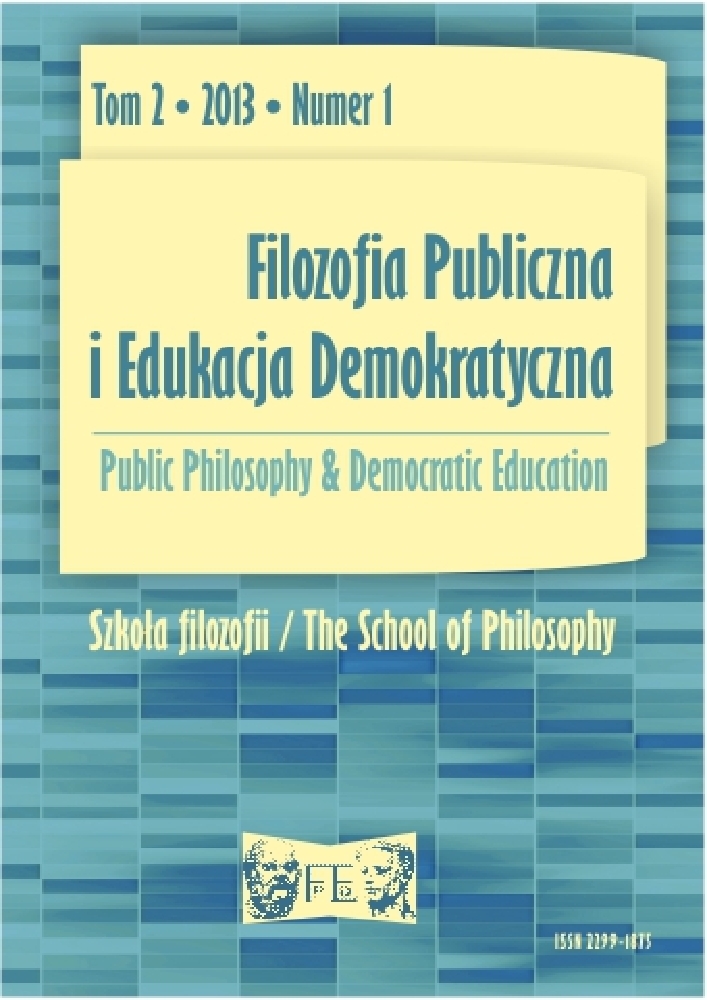Abstract
The authors of this article assume that educational processes constitute an indispensable foundation of a just and supportive society based on such values as friendship, freedom, equality, solidarity, and common good. That is why the article problematizes the development of social, cultural, and intercultural competences in the plans and structures of education in formal educational institutions. The authors refer to a new definition of the classical concept of “common good”, formed in the context of political ethics, and attempt to understand the dimensions of “education for common good” or “inclusive education”.
License
Copyright (c) Authors retain copyright and publishing rights to their articles in this journal, granting the journal the right to distribute them under the terms of the CC BY-NC-ND 4.0
